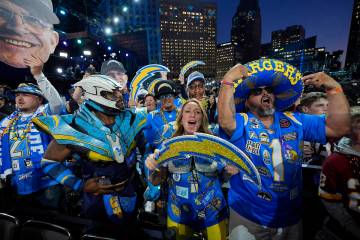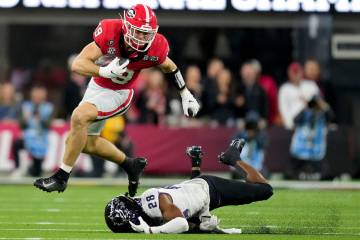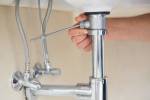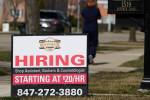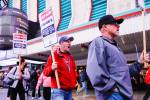State unemployment taxes would drop slightly under new proposal
CARSON CITY — Employers across the state would pay almost the same next year to provide unemployment benefits for their laid-off workers under proposals supported Wednesday by the state Employment Security Council.
The proposals slightly cut the unemployment taxes the employers now pay the state, while adding a bond tax to immediately pay off a $520 million loan that the state owes the federal government. The changes would keep the total taxes the average employer pays on a typical worker at about $720 a year.
The seven-member council of business and labor representatives voted unanimously to recommend that the state unemployment tax rate, now averaging 2.25 percent on the first $26,900 of each employees’ wage, be cut to 2.1 percent on the first $27,400 in wages in 2014.
At the same time, they gave their consent to a plan to allow Employment Security Division Director Renee Olson to issue state bonds to pay off the loan to the U.S.Department of Labor. The state was forced to borrow money during the recession to cover costs of paying state unemployment benefits.
The recommendations likely will reduce by a few dollars per employee what employers now pay in state and federal taxes to provide unemployment to their workers, said David Schmidt, a state economist.
If the federal loan is paid off through the bond by mid-November, many of the taxes that employees now pay to the federal government to reduce the debt would end. But if the bond is not secured, then that federal tax would increase each year until the loan is paid off.
Olson estimates that employers will pay a 0.5 percent tax to retire the bond. But she added it could be as high as 0.8 percent. Before finalizing the bond plan, she needs approval Thursday from both the state Board of Finance and the Legislative Commission. She said she would not pursue the bond if there are negative changes in the bond market.
“It is unlikely the bond market will change significantly enough to move us away from the bond situation,” Olson added.
The council only makes recommendations. Olson has the sole authority to change the tax rate, and she will make that decision on Dec. 4. But she said Wednesday she thought the proposals make a lot of sense.
If she decides not to pursue a bond for pay the federal loan, then the average state tax rate would remain at 2.25 percent.
The tax rates companies pay vary from 0.25 percent to 5.4 percent depending on their frequency of laying off workers who go on unemployment. That means one company could pay a lot more than $750 per employee or a lot less.
A major benefit of paying off the federal debt is that some of the revenue from the state’s 2.1 percent average unemployment tax can go to building up the state unemployment trust fund. The fund would have a $190 million reserve by the end of 2014 under the scenario recommended Wednesday.
Ideally state reserves should be more than $1 billion to cover unexpected costs during another recession. Nevada exhausted its reserves during the recent recession, when state unemployment reached 14 percent.
“It’s a no-brainer,” Employment Security Council Chairman Paul Havas said of the proposals approved Wednesday.
Havas, who has served on the council for 40 years, and other members said they want to keep employer taxes as low as possible while still paying off the debt and building a reserve.
During the meeting, state chief Economist Bill Anderson predicted the state unemployment rate, now 9.5 percent, will drop to 9.2 percent in 2014 and 8.8 percent in 2015 because of increased employment.
So far this year, the state has added 22,300 jobs, a total that could increase to 26,000 next year and 30,000 in 2015.
Nevada’s economy lost 175,000 jobs between 2007 and 2010. It has not approached the peak employment levels attained before the recession. Even the construction industry, which lost 100,000 jobs in the recession, has added 4,600 workers this year.
Contact Capital Bureau Chief Ed Vogel at evogel@reviewjournal.com or 775-687-3901.




